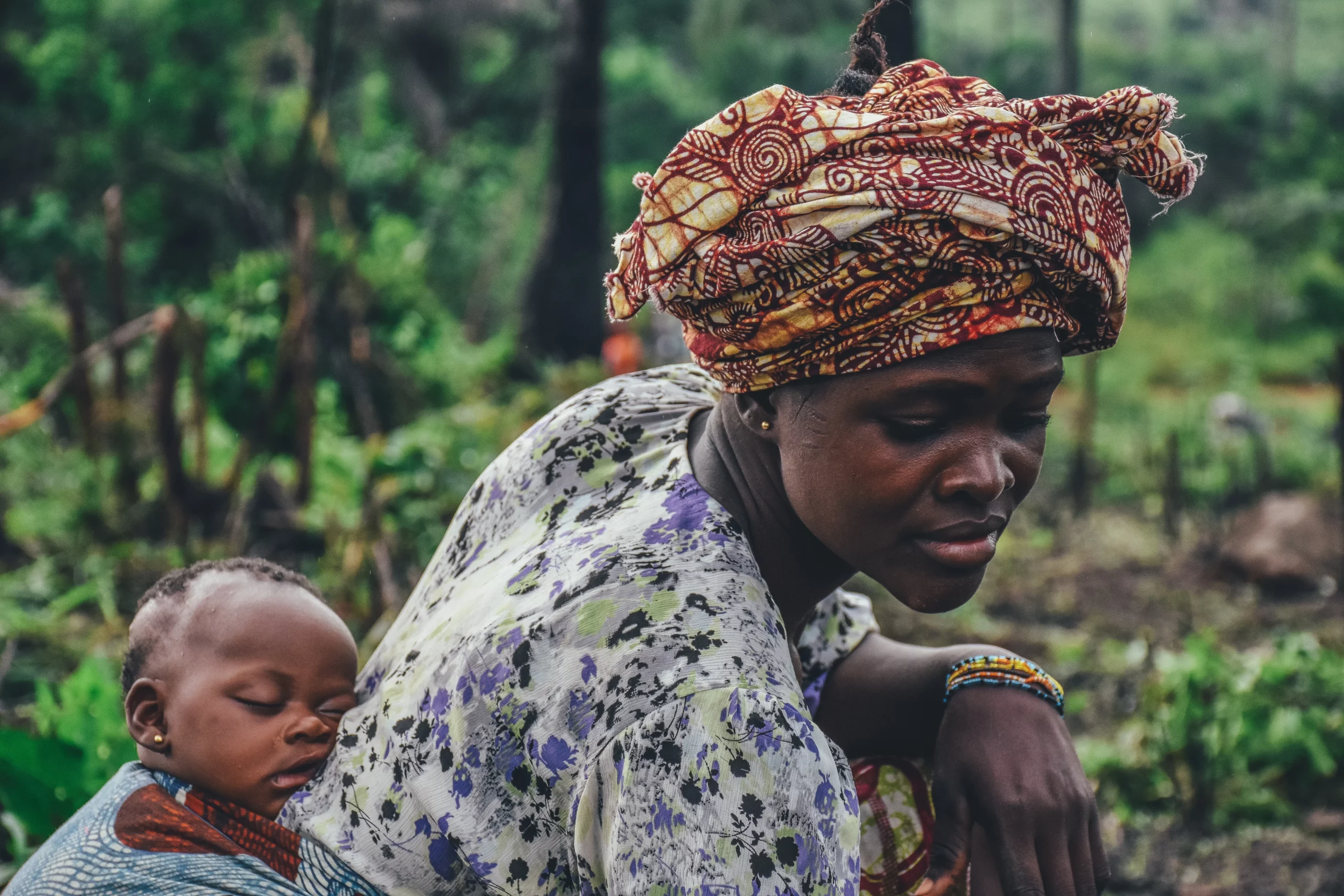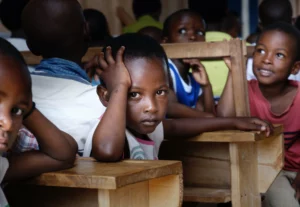
Is the Global Water Crisis the Next Pandemic?
Dive into the heart of the global water crisis—where climate change meets geopolitical strife. Discover cutting-edge solutions and international efforts aimed at securing water for all.

Africa stands at a crossroads in 2024, with its geopolitical landscape more dynamic and complex than ever before. This intricate tapestry includes historical legacies, current socio-political upheavals, and the strategic interests of regional and global powers. The continent’s future, influenced by African geopolitics, holds significant implications for its nations and the global community.
Complex Landscape of Challenges: African geopolitics in 2024 is defined by a complex interplay of internal and external challenges. These include fragile states, military influence, resource competition, and corruption. These factors contribute significantly to the continent’s instability and require comprehensive strategies to address.
Regional Integration and Cooperation: Organizations like the African Union (AU), the Economic Community of West African States (ECOWAS), and the East African Community (EAC) play pivotal roles. They promote regional cooperation, peace, and economic integration. They showcase the power of collective action in addressing geopolitical challenges.
Geopolitical Competition and Opportunities: The continent’s vast natural resources and strategic position attract significant international interest. This leads to geopolitical competition but also offers opportunities for investment and development. How African countries manage these relationships and leverage opportunities will significantly impact their future.
Efforts to Combat Corruption: Corruption remains a significant impediment to growth and stability. Efforts to enhance governance, promote transparency, and strengthen institutions are critical for combating corruption and fostering sustainable development.
Recent Conflicts Highlight Ongoing Security Challenges: Recent conflicts in regions such as Sudan and Ethiopia underscore the persistent security challenges facing the continent. Addressing these conflicts requires regional cooperation, international support, and sustainable solutions that tackle the root causes of instability.
Effective Resource Management for Sustainable Development: Equitable and sustainable management of Africa’s natural resources is essential for the continent’s prosperity. Policies promoting transparent resource allocation and environmental sustainability are key to achieving this goal.
Across the continent, the shadow of fragility looms large. This is notably marked by the presence of states grappling with challenges of authoritarian rule and military influence. Countries such as Sudan and Somalia have become emblematic of this struggle. Military coups and armed conflicts have destabilized regions, creating power vacuums and humanitarian crises. Moreover, the military’s role in politics, as observed in Egypt, continues to shape the political landscape. This often comes at the expense of democratic governance and civil liberties.
Africa’s vast natural resources, rather than being a boon, have often fueled conflict and underdevelopment due to mismanagement and corruption. The “resource curse” phenomenon is starkly visible in nations like the Democratic Republic of Congo (DRC) and Nigeria. Abundant mineral wealth and oil reserves in these countries have attracted both internal and external contestation. The struggle for control over these resources underscores many of the geopolitical tensions on the continent. This has led to prolonged conflicts and environmental degradation.
Corruption remains a pervasive issue, undermining efforts towards sustainable development and equitable governance. It distorts economic policies, hampers foreign investment, and erodes public trust, further complicating the path to stability and prosperity. Initiatives to combat corruption face significant hurdles, including entrenched patronage networks and a lack of political will, reflecting the complexity of governance challenges in the region.
The continent’s instability worsens due to various tensions and conflicts. Terrorism, piracy, and inter-state disputes pose ongoing threats to peace and security. Groups like Boko Haram in Nigeria and Al-Shabaab in Somalia, alongside emerging threats in the Sahel region, highlight the persistent challenge of violent extremism. These conflicts not only destabilize affected countries but also have a spillover effect on neighboring nations, contributing to a cycle of insecurity and displacement.
Ethnic rivalries and political power struggles further fracture the continent’s stability. The principle of Ivoirité in Ivory Coast fueled a devastating civil war. It exemplifies how ethnic divisions can be politicized, leading to deep societal divisions and violence. Similarly, in South Sudan, ethnic tensions have been a significant driver of conflict. This underscores the challenges of nation-building in a context of diversity and historical grievances.
This initial exploration into the complexities of African geopolitics reveals a continent navigating a labyrinth of challenges. From the enduring impact of fragile states and the resource curse to the myriad tensions fueling instability, the geopolitical landscape of Africa in 2024 is both fraught with challenges and ripe with potential. As we delve deeper into these issues, the imperative for strategic engagement, both within the continent and by the international community, becomes increasingly clear.
In the intricate dance of African geopolitics, countries on the continent are increasingly mastering the art of balancing their international relationships. This strategic maneuvering aims to maximize national interests without falling prey to dependence on any single global power. For instance, the African Union (AU) emphasizes multilateral cooperation and neutrality, aiming to maintain a unified stance amidst global tensions. Moreover, the shift towards engaging with a diverse range of partners reflects a keen understanding of the geopolitical landscape in 2024.
Efforts at regional integration highlight the continent’s commitment to collective security and economic prosperity. Entities like the Economic Community of West African States (ECOWAS) and the East African Community (EAC) serve as beacons of cooperation, promoting peace, stability, and economic integration among member states. These organizations exemplify how regional solidarity can be a potent force in navigating the complexities of African geopolitics.
The continent’s geopolitical significance attracts considerable international attention, leading to varied degrees of foreign intervention and influence. The major players, including China, the United States, the European Union (EU), and Russia, have distinct strategies and interests in Africa:
China focuses on infrastructure and trade partnerships, significantly impacting economic landscapes across the continent.
Russia emphasizes military support and resource extraction, seeking to bolster its geopolitical footprint.
The United States aims to foster economic ties and counter the influence of its geopolitical rivals.
The EU maintains a complex relationship with Africa, rooted in historical ties and contemporary economic partnerships.
The continent has become a focal point for geopolitical competition, with global powers vying for influence over its vast resources and strategic locations. This competition is characterized by:
Investment and Aid: Countries are leveraging financial aid and investment in infrastructure to strengthen their ties with African nations.
Military Presence: Establishing military bases and security cooperation agreements to secure strategic interests.
Diplomatic Engagements: Increasing diplomatic efforts to forge alliances and partnerships.
Corruption significantly impacts the geopolitical dynamics of the continent, with far-reaching consequences:
Economic Impacts: Hindering economic growth and discouraging foreign investment.
Political Stability: Undermining governance and contributing to political instability.
Efforts to combat corruption include:
Strengthening institutional frameworks.
Promoting transparency and accountability.
International partnerships focused on governance reform.
Recent conflicts in Africa underline the continent’s ongoing security challenges:
Sudan: The breakdown of the accord between military factions has led to widespread violence and instability.
Ethiopia: Ethnic conflicts and political power struggles continue to pose significant challenges to national unity and peace.
These conflicts highlight the urgent need for comprehensive solutions that address the root causes of instability and promote sustainable peace.
As Africa navigates geopolitics in 2024, it requires a concerted effort from African nations and the international community. Addressing conflict root causes, fostering regional cooperation, and engaging constructively with global partners can lead to stability and prosperity.
In the quest for stability and prosperity, African nations are employing various strategies to navigate the geopolitical landscape. These efforts are crucial for overcoming the continent’s challenges and leveraging opportunities for growth and development.
African countries are adopting multifaceted approaches to address their geopolitical challenges:
Enhancing Governance: Strengthening institutions to combat corruption and improve service delivery.
Economic Diversification: Moving away from dependency on natural resources to a more diversified economy.
Regional Peacekeeping Initiatives: Leveraging regional organizations like ECOWAS for conflict resolution and peacekeeping.
The role of international cooperation is pivotal in supporting Africa’s geopolitical strategies:
Development Aid and Investment: Collaborations with global partners to boost economic development and infrastructure.
Security Partnerships: Working with international allies to enhance security and counter-terrorism efforts.
Climate Change Mitigation: Engaging in global initiatives to address the impacts of climate change on the continent.
Effective management of Africa’s vast natural resources is critical for sustainable development:
Transparent Resource Allocation: Implementing policies for transparent and equitable distribution of resource wealth.
Environmental Sustainability: Adopting practices that ensure the sustainable exploitation of natural resources.
Looking ahead, African geopolitics in 2024 shows a continent shaping its destiny amid global and regional challenges. African nations’ strategies, with international support, promise stability and prosperity. Africa shows resilience and dynamism amid geopolitical complexities. It aims for a future of peace, development, and prosperity for all its people.
| Challenge | Strategy | Potential Impact |
| Corruption | Enhancing Governance | Improved transparency and accountability |
| Economic Dependency | Economic Diversification | Greater economic stability and growth |
| Ethnic and Political Conflicts | Regional Peacekeeping Initiatives | Reduced conflicts and enhanced regional stability |
| Resource Management | Transparent Resource Allocation | Equitable and sustainable development |
For further reading on the challenges and opportunities facing the African continent, explore these resources:
This comprehensive analysis underscores the significance of African geopolitics in shaping the continent’s future. Through strategic initiatives and international cooperation, Africa is poised to overcome its challenges and harness its full potential on the global stage.

Dive into the heart of the global water crisis—where climate change meets geopolitical strife. Discover cutting-edge solutions and international efforts aimed at securing water for all.

Dive into African Development in 2024, focusing on pivotal actions for overcoming economic, social, and environmental challenges for a thriving future.

Unraveling the complexities of African Territories Construction, this article offers insights into its profound impact on Africa’s geopolitical and developmental trajectory.